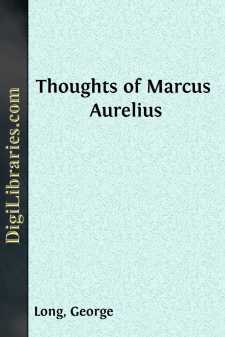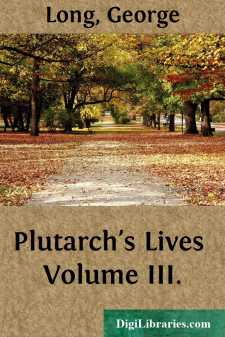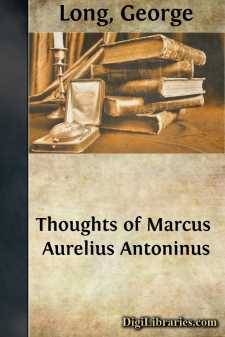Categories
- Antiques & Collectibles 13
- Architecture 36
- Art 48
- Bibles 22
- Biography & Autobiography 813
- Body, Mind & Spirit 142
- Business & Economics 28
- Children's Books 15
- Children's Fiction 12
- Computers 4
- Cooking 94
- Crafts & Hobbies 4
- Drama 346
- Education 46
- Family & Relationships 57
- Fiction 11828
- Games 19
- Gardening 17
- Health & Fitness 34
- History 1377
- House & Home 1
- Humor 147
- Juvenile Fiction 1873
- Juvenile Nonfiction 202
- Language Arts & Disciplines 88
- Law 16
- Literary Collections 686
- Literary Criticism 179
- Mathematics 13
- Medical 41
- Music 40
- Nature 179
- Non-Classifiable 1768
- Performing Arts 7
- Periodicals 1453
- Philosophy 64
- Photography 2
- Poetry 896
- Political Science 203
- Psychology 42
- Reference 154
- Religion 513
- Science 126
- Self-Help 84
- Social Science 81
- Sports & Recreation 34
- Study Aids 3
- Technology & Engineering 59
- Transportation 23
- Travel 463
- True Crime 29
George Long
George Long (1800–1879) was a British classical scholar and translator known for his work in ancient philosophy and Roman history. He translated several important works, including "The Meditations of Marcus Aurelius," and contributed to the understanding of Stoic philosophy. Long was also a key figure in the development of classical education in England, serving as a professor of Latin at University College London and writing extensively on Roman law and antiquities. His other notable works include "Decline of the Roman Republic" and "The Thoughts of Marcus Aurelius Antoninus."
Author's Books:
Sort by:
by:
George Long
PREFACE. Perhaps some may question the wisdom of putting out the Thoughts of Marcus Aurelius Antoninus to be used as a Reader by children in the schools. It may appear to them better suited to the mature mind. The principle, however, that has governed us in selecting reading for the young has been to secure the best that we could find in all ages for grown-up people. The milk and water diet provided...
more...
by:
George Long
LIFE OF PLUTARCH. Plutarch was born probably between A.D. 45 and A.D. 50, at the little town of Chaeronea in Boeotia. His family appears to have been long established in this place, the scene of the final destruction of the liberties of Greece, when Philip defeated the Athenians and Boeotian forces there in 338 B.C. It was here also that Sulla defeated Mithridates, and in the great civil wars of Rome...
more...
by:
George Long
LIFE OF NIKIAS. As it appears to me that the life of Nikias forms a good parallel to that of Crassus, and that the misfortunes of the former in Sicily may be well compared with those of the latter in Parthia, I must beg of my readers to believe that in writing upon a subject which has been described by Thucydides with inimitable grace, clearness, and pathos, I have no ambition to imitate Timæus, who,...
more...
by:
George Long
LIFE OF PELOPIDAS. I. Cato the elder, speaking to some persons who were praising a man of reckless daring and audacity in war, observed that there is a difference between a man's setting a high value on courage, and setting a low value on his own life—and rightly. For a daring soldier in the army of Antigonus, but of broken and ill health, being asked by the king the reason of his paleness,...
more...
by:
George Long
BIOGRAPHICAL SKETCH MARCUS AURELIUS ANTONINUS. M. Antoninus was born at Rome, A.D. 121, on the 26th of April. His father, Annius Verus, died while he was praetor. His mother was Domitia Calvilla, also named Lucilla. The Emperor T. Antoninus Pius married Annia Galeria Faustina, the sister of Annius Verus, and was consequently the uncle of M. Antoninus. When Hadrian adopted Antoninus Pius and declared...
more...






